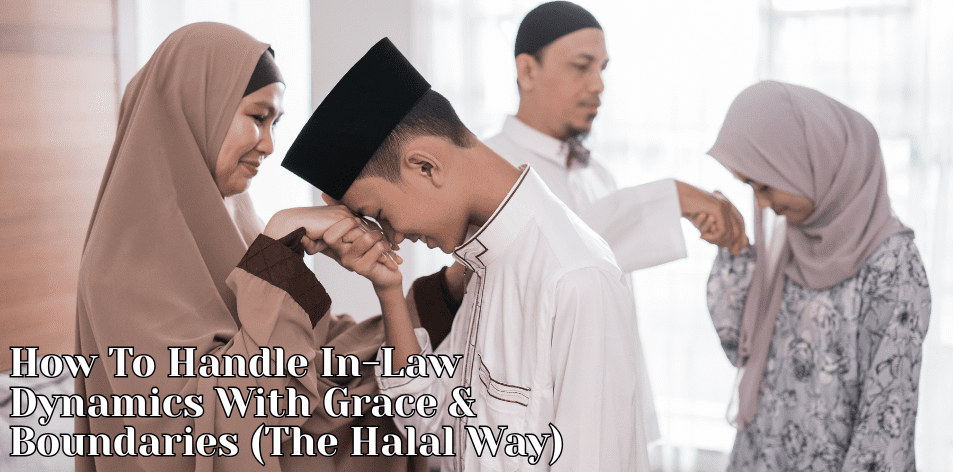💞Balancing Love, Respect & Emotional Space Through Faith & Wisdom
The Delicate Balance Of Family Ties
Marriage, in the halal framework, is more than a bond between two individuals — it’s the uniting of families, values, and responsibilities. In-laws play a significant role in shaping this family unit, but maintaining harmony requires tact, humility, and strong faith.
True love in marriage isn’t just about nurturing your bond as a couple, but also about managing external relationships with grace, guided by the principles of respect, patience, and fairness.
1. Begin With Sincerity & Respect
In Islam, adab (good manners) is the foundation of all relationships. Treat your in-laws with genuine respect, even when differences arise. A warm greeting, kind words, or a helping hand reflect the beauty of your character and strengthen family ties.
2. Avoid The Trap Of Comparison
Each marriage is unique. Comparing your spouse or household to the expectations or traditions of in-laws only breeds tension. Instead, appreciate your marriage for what it is — a partnership blessed by Allah, not a performance for others.
3. Communicate With Calmness & Wisdom
If disagreements arise, speak gently and privately with your spouse first. Avoid direct confrontation or public discussion. Communication done with sincerity and softness is far more effective than words spoken in frustration.
4. Set Boundaries, But With Compassion
Boundaries are not barriers — they are a form of mercy. Establishing healthy limits around visits, opinions, or personal space helps protect peace within your marriage. Express them with humility and love, ensuring they are understood as measures of respect, not rejection.
5. Let Your Spouse Lead Their Side
When delicate matters arise with your in-laws, allow your spouse to take the lead with their family. This approach prevents miscommunication and demonstrates unity within your marriage — a key element of halal harmony.
6. Practise Sabr & Choose Peace
Not every disagreement deserves a reaction. Sometimes silence is the highest form of strength. Practising sabr (patience) allows tempers to cool and hearts to soften, protecting your inner peace and the sanctity of your marriage.
7. Show Gratitude & Kindness
Expressing gratitude, even for small gestures, fosters goodwill. A heartfelt “thank you” or a thoughtful gift can transform strained relationships into warmer ones. Remember, kindness is a form of dawah — it reflects your faith and good character.
8. Keep Matters Private
Your marriage is sacred. Avoid discussing in-law issues with outsiders, as doing so invites unnecessary interference. Protecting your privacy ensures that trust remains unbroken between you and your spouse.
9. Safeguard Your Emotional Well-being
Your mental and emotional health are part of your amanah (trust). If certain interactions become emotionally draining, it’s acceptable to maintain respectful distance. Do so with dignity, without resentment, and always wish well for others.
10. Seek The Bigger Picture
Family harmony is a form of barakah (blessing). Even when challenges arise, focus on maintaining peace and unity. Remember — your in-laws are part of your extended family through marriage, and honouring them pleases Allah.
Navigating in-law relationships with grace in a halal marriage requires humility, patience, and strong spiritual grounding. By communicating respectfully, setting healthy boundaries, and acting with compassion, couples can preserve peace and strengthen the foundation of love and faith in their homes. 🌸

